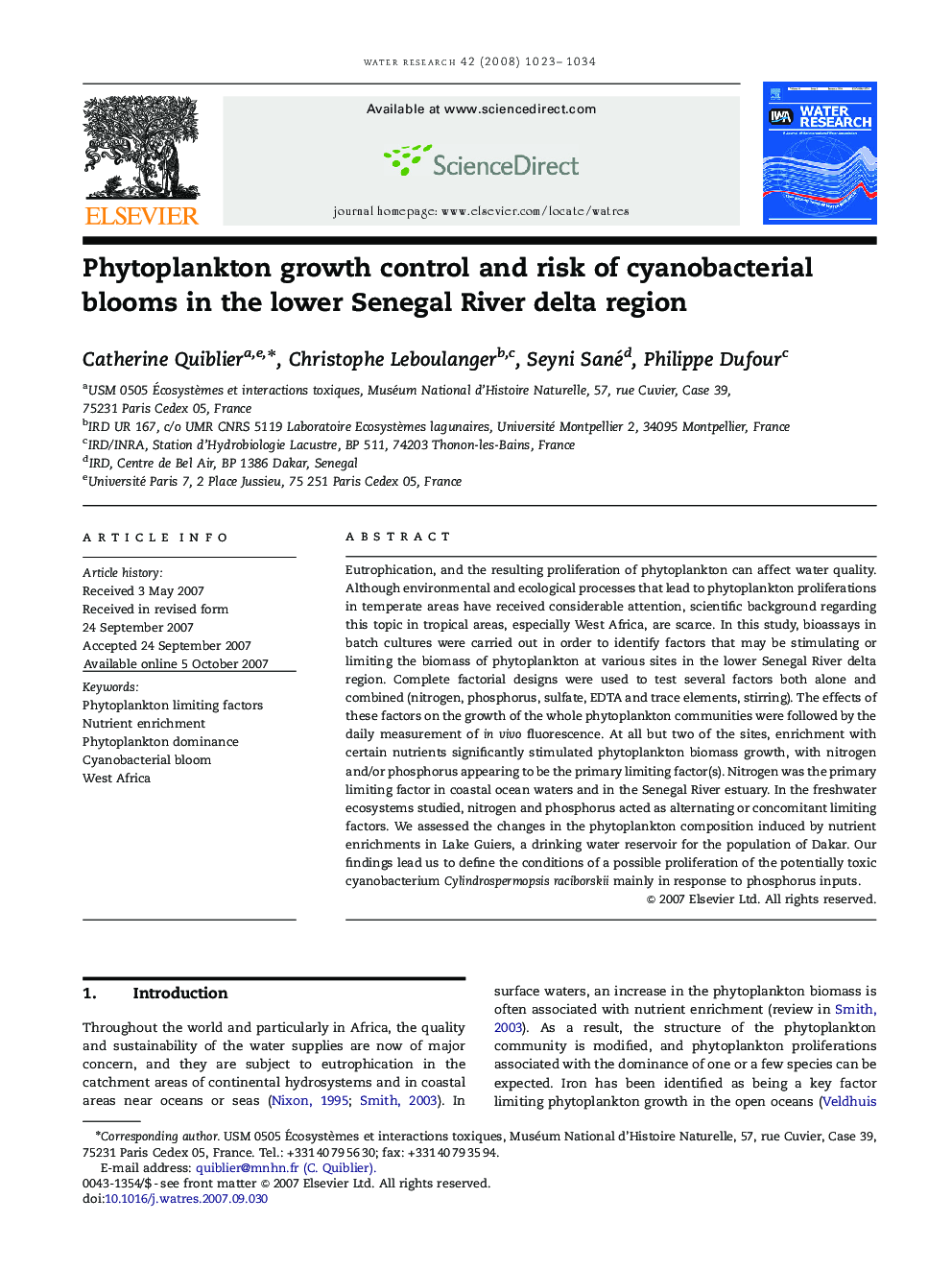| Article ID | Journal | Published Year | Pages | File Type |
|---|---|---|---|---|
| 4483733 | Water Research | 2008 | 12 Pages |
Eutrophication, and the resulting proliferation of phytoplankton can affect water quality. Although environmental and ecological processes that lead to phytoplankton proliferations in temperate areas have received considerable attention, scientific background regarding this topic in tropical areas, especially West Africa, are scarce. In this study, bioassays in batch cultures were carried out in order to identify factors that may be stimulating or limiting the biomass of phytoplankton at various sites in the lower Senegal River delta region. Complete factorial designs were used to test several factors both alone and combined (nitrogen, phosphorus, sulfate, EDTA and trace elements, stirring). The effects of these factors on the growth of the whole phytoplankton communities were followed by the daily measurement of in vivo fluorescence. At all but two of the sites, enrichment with certain nutrients significantly stimulated phytoplankton biomass growth, with nitrogen and/or phosphorus appearing to be the primary limiting factor(s). Nitrogen was the primary limiting factor in coastal ocean waters and in the Senegal River estuary. In the freshwater ecosystems studied, nitrogen and phosphorus acted as alternating or concomitant limiting factors. We assessed the changes in the phytoplankton composition induced by nutrient enrichments in Lake Guiers, a drinking water reservoir for the population of Dakar. Our findings lead us to define the conditions of a possible proliferation of the potentially toxic cyanobacterium Cylindrospermopsis raciborskii mainly in response to phosphorus inputs.
